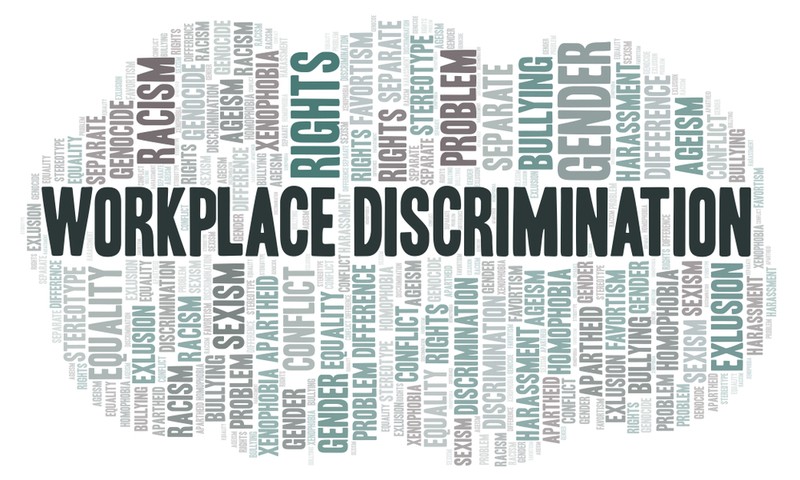Workplace Discrimination
employer/employee relationship.
The Top Labor and Employment Issues Keeping Businesses and Employees Up at Night in 2021 and Beyond
Attorneys Fighting Against Workplace Discrimination
Most employees are hired on an at-will basis, meaning they can be terminated for any nondiscriminatory reason or leave the job whenever they want. Under federal, state and local laws, however, employers cannot terminate employees based on their protected class. In other words, it is against the law to discriminate against employees and job applicants.
Under federal laws the U.S. Equal Employment Opportunity Commission (EEOC) is responsible for enforcing federal laws that make it illegal to discriminate against a job applicant or an employee because of the person’s race, color, religion, sex (including pregnancy, transgender status, and sexual orientation), national origin, age (40 or older), disability or genetic information.
Most employers with at least 15 employees are covered by EEOC laws (20 employees in age discrimination cases). Most labor unions and employment agencies are also covered.

The laws apply to all types of work situations, including hiring, firing, promotions, harassment, training, wages, and benefits.
We are tenacious employee advocates at the Law Firm of Figeroux & Associates– we help clients who have suffered employment discrimination based on:
• Race
• Religion/Creed
• Color
• Age
• National Origin
• Alienage or Citizenship Status
• Gender (including Sexual Harassment)
• Gender Identity
• Sexual Orientation
• Disability
• Pregnancy
• Marital or Partnership Status
• Arrest or Conviction Record
• Status as a victim of Domestic Violence, Stalking or Sex Offenses
• Unemployment Status
• Caregiver Status
• Credit History

We have a history of successfully advocating for employee rights, including the right of protected classes under Title VII and state and local laws to be free from discrimination in the workplace. From our office in Brooklyn, we represent clients throughout New York City. We have also partnered and lectured at the Chamber Coalition’s Paralegal Program on Civil Rights and Employment Law issues for the past decade. We offer training to union leaders and employers to foster a productive and safe work environment.
Who Is Protected Under Title VII Of The Civil Rights Act?
Title VII of the Civil Rights Act is a federal law that prohibits employment discrimination based on a worker’s race, color, sex (which includes pregnancy, Sexual Orientation, and Transgender Status), religion, and national origin. Title VII applies only to these specific characteristics. It also applies only to employers with 15 or more employees; however, smaller employers may still be subject to claims under state or local laws.
Do Any Other Protected Classes Exist?
The federal Age Discrimination in Employment Act is a federal law that prohibits discrimination based on age. It applies to employers with 20 or more employees. The federal Americans with Disabilities Act prohibits discrimination based on disability and applies to employers with more than 15 employees.
New York has created additional protected classes through state law. These classes protect from discrimination based on genetic information, marital status, military status, sexual orientation, lawful recreational activities, political activities, and other characteristics.
New York City has also enacted laws that further expand the list of protected classes. These include unemployment status, alienage or citizenship status, caregiver status, and credit history.
Under the Fair Chance Act, employers are prohibited from asking about a criminal record before making a job offer, although exceptions exist for some occupations.
Because there are different protected classes under various laws, it is important to contact an employment attorney if you believe you have been discriminated against for any reason.
How Do I Prove Discrimination?
Many people are hesitant to make claims about discrimination because they believe discrimination is difficult to prove. Fortunately, there are ways to help your case. For example, you can keep a journal of discriminatory comments or actions as they occur, so you have a record of dates, times, and accurate quotes.
There are other methods for gathering evidence, but doing so incorrectly may harm your case. If you believe you have experienced discrimination at work, consult with our attorneys as early as possible so we can guide you in how to compile evidence and the best steps to take.
What Evidence Is Needed to Prove Employment Discrimination?
You will want to gather any evidence that shows not only that you are being treated differently from other employees but that the reason for that disparate treatment is your membership in a protected class (race, gender, disability, etc.). It’s a good idea to discreetly take notes of conversations with your boss or coworker (complete with dates and other info) that show or suggest discriminatory attitudes/behaviors. It can also be helpful to find paperwork containing discriminatory language or showing disparate treatment, such as repeated failure to be promoted despite being the most qualified candidate. If you aren’t sure whether a piece of evidence is relevant, show it to your attorney.
Employer Defense of Discrimination Claims.
Because employment laws are continually changing in New York, employers need an experienced attorney who keeps abreast of the latest developments in the law.
We will provide clear explanations of your legal options and obligations as an employer. With us, you can trust that you are getting skilled employment law attorneys who can communicate the merits of any case in an honest, objective manner. If you are being accused of allowing discrimination against an employee or group of employees, delay can be costly. Seek the advice of an employment law firm that routinely handles both sides of employment law disputes.
While we strive to resolve legal matters cost-effectively, we are capable courtroom attorneys who can follow through to trial.
We Push for Results. We Focus on Solutions.
Our lawyers approach each case involving discrimination with the confidence that stems from a successful practice. We know when employers may be reluctant to disclose information and when an employee has a meritorious claim. That is why we provide each client with a thorough case evaluation. We can then inform you of the benefits, risks, and potential consequences of your legal options. We can advise you on the best course of action. We have also partnered and lectured at the Chamber Coalition’s Paralegal Program on Civil Rights and Employment Law issues for the past decade.
We offer training to union leaders and employers to foster a productive and safe work environment.
Schedule a Free Legal Consultation Now.
Please schedule a free legal consultation with The Law Firm of Figeroux & Associates. Ask the Lawyer with Brian Figeroux, Esq. You have questions; we have the answers. Call us on the following legal matters: Employment Law, Immigration, International Trade, Matrimonial Law, Wills, Estates & Trusts, Civil Rights, Personal Injury, Bankruptcy, Taxation, Equity Smart, Landlord & Tenant, Workers’ Compensation, Social Security Disability, Small Business Solutions, Non-Profits, Deed Transfers and Real Estate Transactions. Schedule a free consultation at 855-768-8845.
Useful Links
Recent Posts
- How a Pre-Existing Condition Can Affect a Personal Injury Claim November 11, 2025
- Dental Injuries After a Car Accident: What You Need to Know October 28, 2025
- Partisan Politics Should Not Hurt People October 20, 2025
- 7 Reasons Why Your Business Needs a Corporate Lawyer October 20, 2025
Partner Organizations
Contact Info
Careers
Case Evaluation & Support
Disclaimer
This website contains general information about the Law Firm of Figeroux & Associates. This website is not intended to be a solicitation or to provide legal advice. It is intended to provide general information and is not an invitation to an attorney-client relationship. No reader of this website should take action or act or refrain from doing so on the basis of information provided herein.
